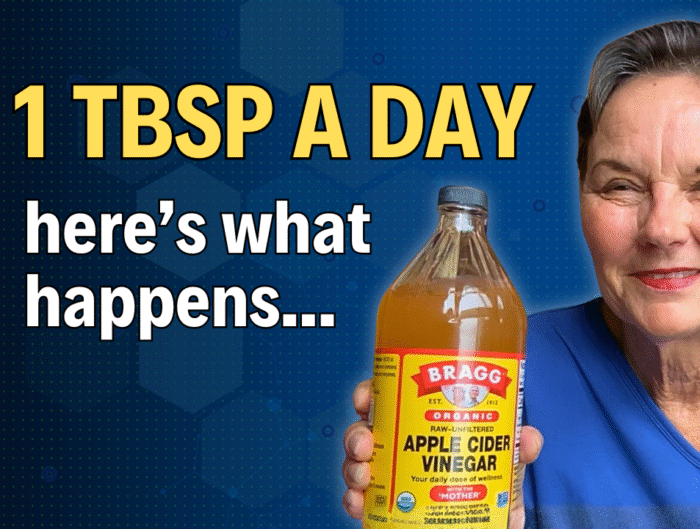Microplastics are all around us. Microplastics have been found from the coral reefs and the Mariana Trench to Mt. Everest and the ice in Antarctica. We encounter microplastics in dust, trash, fabrics, cosmetics, cleaning products, rain, seafood, produce, building supplies, table salt, etc. But this might surprise you even more. Microplastics are also found throughout our bodies from our brain, circulatory system, and organs to our tissues and cells. Yes, these microplastics are even within the human reproductive system, not only being found in placentas and breast milk, but also in testes and semen. It’s clear to see that microplastics are a problem we must deal with if we are to stay healthy.
Two to four tons of plastic garbage are dumped in the ocean each year. Many are plastic-coated fibers that pollute our soil and water. The problem with plastics is that they don’t decompose. They only break down into smaller pieces.
According to Stanford Medicine, microplastics can accumulate in the body over time. Some microplastics may be excreted through the digestive tract, but smaller particles called nano plastics can enter the bloodstream and remain in the body for longer periods, especially in sensitive organs like the brain and in tissues. This means we may take in more than we can excrete.
A team of researchers led by Philip Demokritou, Director of the Environmental Health Nanoscience Laboratory at the Harvard Chan School, found that nano plastics can enter our cells in two different ways and can penetrate the cell nuclei.
Now I have your attention!
The medical community is becoming more knowledgeable regarding microplastics and issues in the body. Four out of five people have microplastics in their blood. And as already mentioned, microplastics have been detected in every human organ including the brain, liver, kidneys, and even breast milk and placentas.
According to an article published by the Harvard Chan School of Public Health, “Microplastics is more than pollution. It’s also a pressing human health issue. What is worse, we don’t know what the accumulation of these plastics in our bodies might mean for us. Research points to issues including cardiovascular disease, cancers, respiratory disorders, inflammatory bowel diseases as well as dizziness and neurological symptoms.” The smaller the particle, the deeper it can go into the body.
Microplastics In the heart and blood.
Harvard Medical School found that your risk of heart disease or stroke goes up 450% if you have microplastics in your blood. When researchers at Harvard tested the plaque removed from the neck arteries of 257 people, they found tiny particles of plastic—mostly polyethylene and polyvinyl chloride in 58% of people. A new study finds that people with microplastics in the plaque clogging their neck arteries were far more likely to have a heart attack or stroke than people with plastic-free plaque. Could this be related to the continuing rise of heart disease? We don’t know for sure, but more research needs to be done.
Can microplastics and toxins raise blood sugar?
I never thought about this until my husband and I went for a walk with a trusted friend and neighbor. Her husband was having difficulty controlling his blood sugar, and his doctor finally told him that he needed to lower his toxic load. Research at the University of Michigan found that “microplastic-related toxins in your food can give you a 63% higher rate of type 2 diabetes.” Many doctors are now seeing that toxins in our bodies can have an impact on our blood sugar and microplastics are just one of those toxins.
Microplastics in the reproductive system.
According to an article in Harvard Public Health, the average American eats, drinks, and breathes in more than 70,000 microplastics particles each year. A recent study from a birthing center in Hawaii showed that 6 in 10 placentas tested from pregnant women contained detectable levels of microplastics in 2006. But in 2021, all ten placentas had detectable levels of microplastics. Microplastics have also been found in human breast milk and the infant’s first stool, called the meconium. This means that babies are born with plastics in their bodies.
Microplastics in your brain.
Research at the University of New Mexico found that “microplastics build up in your brain at 7 to 30 times higher concentrations than other organs.” Studies have also shown that the frontal cortex contains higher concentrations of microplastics compared to other organs like the liver and kidneys. It’s known that microplastic can cross the blood-brain barrier. Microplastics may also accumulate in fat cells as do all toxins. These fat cells are part of the brain’s insulating myelin sheath, which helps regulate signal transmission. Keep in mind that neurological diseases such as ALS and Multiple Sclerosis have causes related to the disintegration of this myelin sheath.
Some studies suggest that microplastic concentrations may be higher in the brains of people with dementia, particularly within cerebrovascular walls and immune cells. While the liver and kidneys appear to clear some plastic particles, the brain’s ability to expel these particles remains unclear. What is clear is that groundbreaking research shows that microplastics are accumulating in the brain at alarming levels, with concentrations increasing over time and potentially linked to dementia. Definitely, more research needs to be done. Polyethylene is the most common type of plastic found in the brain, which is used in plastic bags and food packaging.
Microplastics in the kidneys.
A study performed by the National Institutes of Health (NIH) suggests that microplastics caused mitochondrial dysfunction, endoplasmic reticulum or ER stress, inflammation, and autophagy in kidney cells and accumulated in HK-2 cells and in the kidneys of mice. These results suggest that long-term polystyrene and microplastis exposure may be a risk factor for kidney health.
Microplastics and cancer?
Microplastics can enter the body through inhalation (eating food and drinking), and through the products we put on our skin. Microplastics are a growing concern because some studies suggest they may contribute to cancer development through various mechanisms, including oxidative stress, DNA damage, and inflammation. Microplastics can carry toxic pollutants that may have carcinogenic effects. Various studies have linked microplastics to various cancers including lung, colon, breast, prostate, and liver.
Since some plastics contain BPA and BHA which are endocrine-disrupting hormones, there are also questions as to whether these can contribute to hormone-sensitive cancers.
According to Bernardo Lemos, an adjunct professor of environmental epigenetics at the Harvard T. H. Chan School of Public Health, “There are so many unknowns, but we are seeing more data that suggest microplastics affect human biology.” Yes, we desperately need more research on the impact of microplastics on the human body.
As we’ve seen today, microplastics are all around us in the water we drink, the food we eat, the clothes we wear, and the air we breathe. Never forget that our bodies have five filtering systems, which help us to protect our bodies from such things. I’m talking about the liver, the colon, the lungs, the kidneys, and our skin—our largest detox organ.
The body primarily eliminates microplastics through urine and feces, with the liver and kidneys playing a role in this process. While sweat can help eliminate some substances related to microplastics, like BPA and phthalates, there’s currently no definitive evidence that sweating directly removes the microplastics themselves. The problem is that we don’t want to take in more microplastics than our body can detoxify and excrete.
Plastics, plastics everywhere. Why should we care? I’ve just given you several reasons. And my other videos on identifying types of plastics, etc. will be referenced below.
With the amount of microplastics continuing to grow each year we must have a plan to reduce our exposure. So stay tuned because next time, we’ll explore ten ways to reduce your exposure to microplastics.
Did you know that microplastics have been found in many parts of the human body?
View this message on YouTube:
Microplastics are Everywhere: How They Impact Our Health
Related YouTube videos:
The Overlooked Kitchen Utensil Proven to Release Microplastics
Eight Simple Tips to Reduce Plastic Use
Unexpected Ways Plastics Enter Our Bodies
The Dangers of Plastics: It’s More Than Just Marine Life
Know Your Plastics to Protect Your Health
For Your Health,
Ginny
 Ginny Dent Brant is a speaker and writer who grew up in the halls of power in Washington, DC. She has battled cancer, ministered around the world, and served on the front lines of American culture as a counselor, educator, wellness advocate, and adjunct professor. Brant’s award-winning book, Finding True Freedom: From the White House to the World, was endorsed by Chuck Colson and featured in many TV and media interviews. Unleash Your God-Given Healing: Eight Steps to Prevent and Survive Cancer was released in May 2020 after her journey with cancer and was recently awarded the First Place Golden Scrolls Award for Memoirs, a finalist in Serious Writers Book of the Decade, and Second Place in both Selah Awards for Memoirs and Director’s Choice Award for Nonfiction at the Blue Ridge Mountain Christian Writer’s Conference. It recently received the Christian Authors Network’s (CAN) Gold Award for Excellence in Marketing for reaching 62.5 million people with a message of cancer prevention and survival. It was written with commentary from an oncologist and was featured on CBN’s Healthy Living Show, Atlanta Live, and CTN’s Homekeepers along with over 75 media outlets. Learn more and cancer and wellness prevention blog and book information at www.ginnybrant.com. Ginny is on YouTube
Ginny Dent Brant is a speaker and writer who grew up in the halls of power in Washington, DC. She has battled cancer, ministered around the world, and served on the front lines of American culture as a counselor, educator, wellness advocate, and adjunct professor. Brant’s award-winning book, Finding True Freedom: From the White House to the World, was endorsed by Chuck Colson and featured in many TV and media interviews. Unleash Your God-Given Healing: Eight Steps to Prevent and Survive Cancer was released in May 2020 after her journey with cancer and was recently awarded the First Place Golden Scrolls Award for Memoirs, a finalist in Serious Writers Book of the Decade, and Second Place in both Selah Awards for Memoirs and Director’s Choice Award for Nonfiction at the Blue Ridge Mountain Christian Writer’s Conference. It recently received the Christian Authors Network’s (CAN) Gold Award for Excellence in Marketing for reaching 62.5 million people with a message of cancer prevention and survival. It was written with commentary from an oncologist and was featured on CBN’s Healthy Living Show, Atlanta Live, and CTN’s Homekeepers along with over 75 media outlets. Learn more and cancer and wellness prevention blog and book information at www.ginnybrant.com. Ginny is on YouTube
Invite Ginny to speak at your church or event
Link to buy book at Unleash Your God-given Healing
Click to sign up to take Conquering Cancer Course
Ginny is a cancer coach. Make an appointment to meet with her:
**** This content is strictly the opinion of Ginny Brant and is for informational and educational purposes only. It is not intended to provide medical advice or to take the place of medical advice or treatment from a personal physician. All viewers of this content are advised to consult their doctors or qualified health professionals regarding specific health questions. Neither Ginny Brant nor the publisher of this content takes responsibility for possible health consequences of any person or persons reading or following the information in this educational content. All viewers of this content, especially those taking prescription or over-the-counter medications, should consult their physicians before beginning any nutrition, supplement, or lifestyle program. ****




